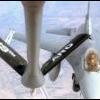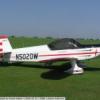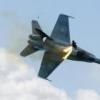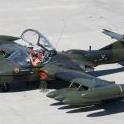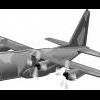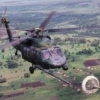Leaderboard
Popular Content
Showing content with the highest reputation on 05/05/2012 in all areas
-
I believe that "Sabatoge" remains the single greatest video ever made for MTV.4 points
-
3 points
-
These people said they wanted out, and put in for VSP. So they're walking the walk. I feel the safe choice is to get out, which is the complete opposite of the way things used to be. And this ties in to the original topic. Pilots stuck in drones get promoted at a much lower rate than their peers. With out being able to count on continuation to 20, they're going to do the sensible thing and start that second career a few years early. Oh, and as the cherry on top many of these pilots hate their jobs. What's this going to do for RPA manning? And someone thinks Air Medals are the answer? YGTBFSM.2 points
-
2 points
-
SHUT YOUR MAN PLEASING CAKE HOLE! You get to go home every night, throw the wife's heels to the ceiling, and watch kiddo's t-ball games and NFL Sunday Ticket on the weekend...oh yeah, Booze! Meanwhile the lowly manned aircraft are flying low level airdrops and shows of force....in the mountains......with weather.....at night! Oh yeah, no Booze! No amount of air medals is worth the time I've missed watching my kids grow up Chow My Hog! Cap-102 points
-
Who cares if it's legit? The Air Force sure doesn't. Anyone ever see the movie Accepted? I'm thinking about creating my own bullshit, online only, for-profit institution out of my living room. You get 12 credits for receiving a commission, 12 credits for graduating UPT, and 9 credits for graduating your FTU. Your final class will be "Issues in AF Leadership" which will require you to participate in the discussion boards of Baseops. You send your $750 of TA to my PO Box, bam, sham masters degree box checked.2 points
-
Shack. Well put. There is a difference between "need" and "want". We could put enough ISR assets in the air to cover every square inch of the planet 24/7 and the Army would say, "Great, can we get 2 assets for every square inch, just in case?" and no one in the USAF would say "no" or "unable" or "maybe that isn't a good idea" because that gets you fired.1 point
-
That's a big part of the problem: there aren't enough people to have this kind of manning. Even the measures that the AF has been trying for years -- TAMI21, extended/indefinite assignments, nonvols, re-tread Navs, Beta class, RPA-only AFSC and training pipeline -- still haven't been able to make it so that the AF can satisfy all the needs of the supported units in theater AND have enough qualified operators to make it a "normal flying job" in terms of hours and work week. Despite changes to the face of OEF and OIF, there is still an insatiable need for ISR. Without getting into specific numbers, the number of daily requests for ISR by supported units in theater outnumbers the total number of available ISR sorties (including all manned and unmanned ISR assets) over 6-to-1. It's an unbelievably big elephant to eat, even WITH the full-throttle press the AF has been involved in making RPA operators the last 5 or 6.9 years. Anyone who has worked with those supported units knows there are more than a fair share of those ISR 'requirements' that are ground commanders gaming the system or wanting ISR just as a security blanket rather than for a true operational need: IMHO there is a lot of fluff in those requests because supported unit commanders often don't know what goes into generating that sortie in terms of time and effort by the USAF (having spoken to a number of green-Army types, ISR is mostly PFM as far as they're concerned). The ISR cells do a decent job of filtering out some of this when they do the daily ATO matches, but there's still a lot of fluff (meaning a lot of time with ISR assets on station watching things with no immediate value when there are other taskings that would have immediate value to the commanders). Until the supported units can get their requests under control, this insatiable need will continue.1 point
-
I don't see why they don't make RPAs a good deal non flying assignment. Man it properly so you work 40 hour weeks, put the shipping containers somewhere like Hawaii or Los Angeles, and make it count as an ALFA tour. Good clean family time. Maybe pilots will look down on it less if it isn't such a kick in the balls in every single possible way.1 point
-
Posts are getting too long, someone post a gratuitous picture of boobs.1 point
-
No. This is what I'm trying to bitch slap into your skull. You are not right. And it does affect the paper's core argument. You can pull whatever math textbook geekery out that you want, but there is no fucking way that you can say with a straight face that your risk is more than manned guys. I don't do statistics and probabilities, but I do caveman math and here's how it plays out: Falling to sleep on the way to work--How many dudes have you lost in the last 10 years doing that? Creech terrorist attack--How many guys have you lost to that? Then why don't you tell me how many dudes we've lost in manned airplanes in theater and tell me if that's more than the others. No formulas and gibberish can get you past that one. The fact is that this does affect your core argument because your core argument 1) includes the concept of risk with regard to combat and 2) is intended to try and influence an audience. Your intended audience cannot see past your ridiculous statment. Therefore making that ridiculous statement--and continuing to defend it--means that your core argument is ineffective because it's not being heard. FYI...you should know that your article has gone viral on AF email and the commentary all reads something like "UFB". I know you are trying to help your bros--and that's admirable--but this risk argument is an embarrassment to them. An absolute embarrassment.1 point
-
1 point
-
They were fighting amongst themsevles... not defending the continent from the asian invaders. Not arguing the merits of ending genocide, but other wise, they can defend themselves. Look at defense spending as a percentage of GDP around the EU, know why it's so low? We foot the f'ing bill and provide all the man power. Why? They've been able to build their socialist EU utopia under the umbrella we've provided. They can defend it on their own.1 point
-
Well, over hear at Beale, we also have the U-2, T-38, and RQ-4. So... I guess that that's who exactly is involved in safety day hear.1 point
-
DeskJockey - Awesome. Yes. More to follow on this but I think that's exactly right. But first, putting to rest the 'differential risk' piece (flossing a dead horse...) - everybody's right. We're talking past each other. It doesn't affect the paper's core argument about killing=combat. [Warning: Statistics & Probability Theory follows. Feel free to skip.] Conditional probability is the probability of x given y. Absolute probability is the probability of x. Differential probability is the increase in probability of x given y. - The risk claim is that bounding current conflicts, for the sake of argument 2006-present, there is no significant difference in differential probability of general enemy-action-related risk given combat when comparing manned to RPA. - To rephrase Hacker's argument, if we changed the bounds to include the opening phases of OIF, or a hypothetical opening phase of Iran, then this would not be true. This is very likely the case, as Risk(Intact IADS) > Risk(Creech Attack.) However, the institution continues to provide routine costly signals (combat pay, medals, prestige, etc. - albeit at a decreased rate) after the IADS has been INOP for more than half a decade. Absolutely agree with the pucker factor point. But this logic does not justify the current policy. - On the core discussion here's what I mean, bounding to current combat zones: 1) Probability of Harm given Manned Aircraft > Probability of Harm given RPA [Risk from CFIT, Aviation Hazards] > [Risk from crashing due to exhaustion] 2) Probability of Harm given a Manned Aircraft and Combat still > Probability of Harm given an RPA and Combat [Risk from CFIT, Aviation Hazards + MANPADS/SMARMS, CONUS General Terror Attack] > [Risk from crashing due to exhaustion + Creech-specific Terror Attack.] 3) But Increase in Probability of Harm for Manned Aircraft given Combat ~ increase in Probability of Harm for RPA given Combat [Risk for MANPADS/SMARMS, CONUS General Terror Attack] ~ [Risk for Creech-specific Terror Attack.] - I believe most of the controversy is about claim 2, where my argument is about claim 3. Hence talking past each other. - My point with this was to destabilize the conventional wisdom about 'combat risk' - that the reason RPA should not consider themselves in combat is because they do not experience a comparable increase of risk due to combat in current circumstances. This assumes a difference in baseline risk between RPA and manned aircraft. Therefore I need to make a weak but plausible claim. Given that our adversaries have expressed that RPA is their number one threat, and they have had more success with CONUS-based major attacks than downrange attacks, compared to the difficulties of acquiring and achieving a kill with MANPADS/SMARMS, it is plausible that the differential combat risk for being in the population of RPAs is higher than the differential combat risk for being in the population of manned aircraft. - Unless I'm forgetting something, there are no data points for 10k+ aircraft crewmen in this timeframe lost to enemy fire, and no data points for a Creech attack. Therefore we fall back on weak Bayesian priors for risk in both cases, which are insufficient for a strong inference of difference. Accordingly, another definition is required. The fact that there are no data points is in both cases a tremendous credit to OSI (and SF.) - As previously noted, this was unclear in the article, and regrettably detracted from the core argument. I agree with this critique. [End stats.] On the point brought up about losing friends - These are my friends as well and I have mourned them. The only way I know to honor them is to fight all the harder for the things they sacrificed for, and from what little I know, that is best done by fighting smarter and thinking harder about how to do things better. Building a sustainable Pred community provides the tactically proficient operators that will finish dismembering what is left of our enemy's network in this war. It also builds the expertise we will need to ensure that whenever a future manned striker punches through the FEBA, it will do so with a flight of drones alongside - a swarm of robots willing to take a missile to save the crews' lives will bring more of our comrades home. Incentives matter because culture matters. Culture matters because performance matters. Medals may or may not be the right answer. But the status quo with 60% to O-4 at Creech and minimal RPA DOs picked up for command certainly is not. Whether this is due to prior adverse selection or due to present conditions is irrelevant - in the first case we shortchanged the program from the outset, in the latter case we are shortchanging it at present - either way we're behind. For all of the deep problems that remain a decade and a half into this project, its in all of our interests to fix this. If it falls apart, it won't go away - the Joint community and the DoD absolutely won't let that happen, even if it means we bleed out the pilot corps again. Far more importantly, letting RPA flounder because of tribalism (i.e. the 'new navs' comment) lets the mission down and kneecaps capabilities that will ultimately come back around to helping out the manned community.1 point
-
...though, he may want to spell it correctly to get the best results....1 point
-
My first concert was the summer of '86- Beastie Boys opening up for Run DMC. I had never heard of the Beastie Boys prior to that night (Licensed to Ill was just hitting the stores) but left a lifelong fan.1 point
-
That's the problem dude. It's not plausible. Not at all. If you think your pink body is even potentially more at risk at the controls of an RPA than a guy in a manned airplane (which is what you said) then your entire argument is tainted by your emotions. That just doesn't pass the sniff test. The risk in combat is not entirely from enemy fire, although despite the statistics that danger does exist. It also simply includes the risk of riding a piece of metal through the air and is amplified by difficult, sometimes extremely challenging circumstances...troops in contact, weather, night, mountains, etc. That risk is there whether the bad guys are shooting at the airplanes or not. Take note of the aircraft losses in the last 10 years that were not caused by enemy fire. It seems to me the risk of flying in a combat theater caught up to those guys regardless of exactly why. The ground--it turns out--has a Pk pretty close to 1.0 and that's not a problem you face as an RPA pilot. You might also take note of a few other threads near the top of the stack in this forum. Seems to me we lost a couple of airplanes quite recently. My point with any of this is not to discredit what RPA guys do and the sacrifices you make (and I do believe they are sacrifices) . I would never do that. I sympathize and agree with much of what you said. I just can't believe you lobbed that ridiculous grenade out there in the midst of saying something potentially good. I wish you had focused more on the "what defines combat" part--which is a discussion worth having-- than the "we face more risks" and "we deserve medals too" parts which came across as pure whining and served to distract from the rest.1 point
-
Thanks for the well-reasoned replies. I do appreciate Ryno's point, even though we do have our disagreements, I think that he has the courage to fight for the things he believes in and fight for them, and I respect that. To engage the 'more at risk' point - the differential risk argument is not so much intended to be persuasive as to be plausible and thereby point out how weak a reed the logic of 'combat risk' is. I believe it is plausible, and thereby supports a more reflective look at how we define combat - killing or directly preventing good guys from being killed is a better overall metric. Following up on DeskJockey's point, which I think is very astute, the marrow of the discussion is 'how do we as a culture adapt to change.' We culturally recognize things we find of value, but the context of those value assessments changes. Consider the Air Medal itself. I do not know what it's like, nor do any of us, to be on a B-17 crew when no crew has yet survived 25 missions. In that case, the Air Medal recognizes the importance the contribution of bomber crews to the mission requiring mostly physical courage. In Vietnam, the definition of physical courage included a set number of landings for a C-130 under fire into a firebase - the contribution to the mission was the same, but the context changed and the understanding of courage was broadened in a way to include different categories. For the majority of OIF/OEF, the air medal for manned aircraft is largely constituted by moral courage, namely the possibility of employing weapons in the context of vast technological superiority, with a small residual element of physical courage. The point of all of this is that every decade or two, we find ourselves in a position where we need to re-assess what we think we know in the face of a changing context (Boyd's Destruction and Creation speaks to this.) I believe that such a re-assessment is overdue and stalled, largely due to tribalism and an inability to see each other as comrades rather than competitors. Therefore, in such a re-assessment, it is possible that the Air Medal (as a symbol of the larger re-assessment) would be constituted as 1) entirely moral courage, therefore about the possibility of shooting, 2) still include an element of physical courage, and therefore find a new means of recognition in order to fit the new context, or 3) delete the element of moral courage, in which case counter medals would go away for all platforms. Any of these are viable options - the important thing is that the re-assessment occurs. As a good friend framed it - tradition is important, and should be preserved if not in conflict with combat effectiveness. We periodically find ourselves in a place where context changes to such a degree that we must decide what to retain and what to update. RPAs have changed this context - our enemies cite RPA as the most effective air asset against them. This should be recognized in meaningful ways - not just words but also the costly markers of cultural value. The current conflicts, combiners with the changes of RPA, bring us to a point where we need to do such a re-assessment. With luck, this might build a new unity amongst the tribes so we could all do our mission better. At the end of the day its not about us - its about the mission and bringing Americans home safe. How we do that has changed. Therefore we need to reassess how we see ourselves.1 point
-
You're right. That's not the real question. But the author put that on the table when he made the "danger" faced by RPA pilots at home in the US part of his argument and stated that RPA pilots were perhaps in more danger than those flying in theater. It was an emotional argument, poorly chosen to support his theory. It was--quite frankly--absurd. So much so that it damaged the credibility of the rest of his argument and caused much of his intended audience to not even be able to see past it. I agree with you here. I personally don't give a crap about medals. But I understand your (and his) point that we have asked these dudes to do a job that most don't want to do. Then we don't give them any credit for it despite their contributions to the overall effort.1 point
-
1) Good on him for coming on here to discuss. I've never been sentenced to fly the shipping container, but have some friends who were in on the ground level and have never left. We've talked at length about the price payed by those who execute the RPA misison. In many cases where you stand depends on where you sit, but I would hope that those who throw stones take some time to really think about what these guys go through, it's real on a lot of levels, and especially painful for those who didn't choose it. Not too many, including this author, are looking for pity...what they want is a better system. 2) Attacking his experience or details/semantics of his biography don't really help or make whatever point you think you're making -by extension: if we limit the people who can comment on combat to those who have seen actual AAA (as opposed to small arms fire or curtain fire?) or "guided" SAMs (are you counting optically guided RPGs or IR MANPADs...or even other missiles that could be RADAR guided but were shot ballistically?) There's a very small amount of people who can comment, and it would be really boring. I don't think that's a qualification for commenting on combat, nor is getting shot at by anything or killing someone. Bringing it up simply detracts from the argument. If you stick to the narrow definition of qualification to speak given previously, stop reading. If you broaden it to "allow" small-arms, RPGs or ballistic shots...or (better yet) think it doesn't matter, as I do, read on to my actual discussion on topic. 3) The real question isn't personal/physical danger...it's the act of killing those who want to kill Americans. The conscious decision to push a button and end the life of another human is not one without cost to the individual doing the killing. The miles don't change that (hand-to hand/face to face combat has differences) There is no difference in dropping a bomb from Xthousand feet or launching a cruise missile from hundreds of miles away vs. the thousands he is at. He distracted from his primary argument in the manner he raised his question, but it doesn't minimize the discussion. There needs to be better systemic recognition of the folks who are KILLING for their country, and by extension risk killing non-combatants, feeling the pain of watching Americans die live on TV, and having to deal with that in an environment where the rest of the world may be a little too normal. (kill someone then go to Wal-Mart because the wife needs apples?) Whether you sleep well at night or not, no matter how you justify it, there is a cost to killing. Anyone who says differently has either not done it, and/or not thought about it too deeply. Does killing define combat or is there more. I fall on the side of killing=combat based on the psychological results. 4) medals are simply an example of a way for the system to acknowledge this action and the sacrifice involved. An Air Medal is not correct...nor is Aerial achievement medal in my opinion. There is a distinct lack of a person in the air. Bronze star? (I'll refrain from the obvious jokes here) I don't think that's right either. There should be something different and new...the battlefield has changed, our terminology, culture, and by extension the system of reward and recognition must change as well. Thoughts?1 point
-
"He has served both physically and through telewarfare in Iraq and Afghanistan" Telewarfare? Really?1 point
-
FIFY Good, I thought I was the only one. I'm always annoyed when they don't fly the approach and landing the way I would have.1 point
-
True. Everything that I have in life I would still have even if I had no medals. Well, okay, I'm lying. I picked up my wife when I showed her my Air Medal Citations. I still get them out from time to time if I need to "get her in the mood".1 point
-
At least he had the cookies and burritos to keep him company.1 point
-
I will pistol whip the next mother fucker who says Reynold's number, and god help you if you bring up Laplace transforms.1 point

